![]()
RubinReports | By Barry Rubin
Reorganizing files for my past articles I came across some amusing and revealing things you might enjoy, showing how often the region doesn’t really change in some key ways and how rarely Western observers learn from events.
1997
Palestinian Authority (PA) Health Minister Munzir Sharif complained to reporters that Israeli security measures, taken after two terrorist bombs killed 12 people in a Jerusalem marketplace, prevented Palestinians from getting needed medical treatment in Israel.
This protest seemed less credible when, three days later, Sharif himself had an operation in an Israeli hospital. He was not alone. Another hundred Palestinians received passes to obtain special care during the closure’s first days.
2002
A key element in the way Arafat is often interpreted is to treat each of his declarations as if it has no history behind it. Thus, when he denounces terrorist attacks on Israel, pledges to make reforms, and asks for patience, this is merely a repetition of statements made many times previously without results. Often, though, headlines around the world about Arafat opposing violence or favoring compromise drown out the fact that these sound bites have long proved empty public relations’ gestures….
Here’s one example: In May 1997, a PLC report found rampant corruption involving Arafat’s highest-ranking officials and in every PA agency. The PLC demanded that Arafat dissolve his cabinet within a month and name a new one staffed by honest professional people and experts. Only in January 1998 did he agree to reshuffle the cabinet, declaring he was launching an anti-corruption campaign. The PLC’s speaker, Abu Ala, greeted this statement as “a new beginning.” Yet Arafat did nothing at all until August 1998 when he did name a new cabinet–with all the same members including those accused by name of having stolen PA funds.
2003
The glorification of the terrorist Sami Qantar is widely seen in the West as showing something is deeply wrong in the Arabic-speaking world. Yet there’s also much denial. The New York Times explained Qantar’s attack had gone terribly wrong when he murdered Israeli civilians. In fact, this was the raid’s purpose.
In another article, the Times intoned: “The United States, Israel and some of their European allies have begun to recognize that their policy of trying to defeat their enemies by isolating and vilifying them has failed.” Yet it was Iran, Syria, Hizballah, and Hamas that dispatches the Qantars on missions against not only Israeli but also Iraqi and Lebanese civilians.
If the extremists should not be vilified should they be praised? If they should not be isolated should they be embraced? Is the correct policy the feting of murderous Syrian dictator Bashar al-Asad in Paris or parleying with the genocidal-oriented Mahmoud Ahmadinejad in Iran? Why did the U.S. government welcome the Syria-Iran-Hizballah victory in knocking down Lebanon’s moderate government? Who’s the villain in Iraq, the United States or the terrorists?
2005
Iran’s choice for its next president, the hard-line mayor of Tehran Mahmoud Ahmadinejad, is likely to worsen relations with the West and the country’s international isolation….
In short, Iran’s electoral outcome is a dangerous one, though precisely how destabilizing it ultimately turns out to be will depend on Ahmadinejad’s actions and the degree of power granted him by Khamenei. Moreover, dealing with such an openly extreme Iran — radical even by the hard-line regime’s standards — will be a challenge not just for the U.S., but for Europe as well.
Will European countries try to pretend that Ahmadinejad’s militant rhetoric and provocations don’t matter and that some diplomatic solution to Iran’s nuclear ambition can be found? …With Ahmadinejad, a high level of appeasement will be necessary for even the most minimal diplomatic process to continue.
2007
One of the dubious rewards of spending too much time reading newspapers on the Middle East are the laughs derived from those wonderful little phrases that seem logical but are so profoundly bizarre. Some indicate media bias but they are more often the result of some reporter or newsmaker who so takes for granted the bizarro, flat-earth version of the Middle East as to be blissfully unaware of the yawning contradiction in what they say.
For example, here’s a great sentence in a rather good survey of European attitudes toward intensifying sanctions against Iran on the nuclear issue. It is taken from Jamey Keaten, AP, “Europeans Ponder Sanctions Against Iran,” of October 27, 2007:
“Concerns have been rising in some European corners that the United States or Israel might attack to prevent Iran from developing atomic bombs….”
That’s fine as far as it goes. But the alert reader will notice the lack of any sentence along these lines:
“Concerns have been rising in some European corners that Iran might be developing atomic bombs.”
2008
If Barack Obama is elected, Iran will know itself safe not only from any U.S. assault, or even pressure, for four years, long enough to complete the nuclear project, but also guaranteed he’d never give Israel a green light to attack. Tehran wins. [Note: Obviously, after almost four years, sanctions are serious but the basic point still applies.]



 RSS
RSS


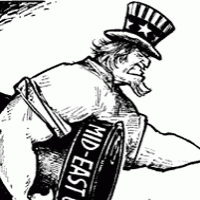
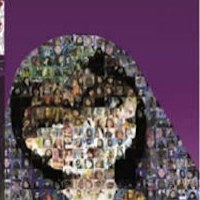
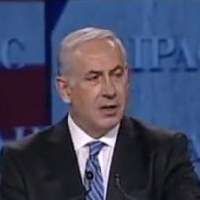
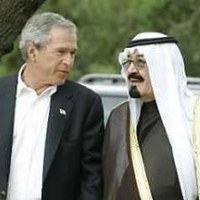
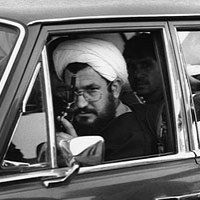













Latest Comments
Hello Mike, Thank you for your positive feedback to the article. I felt there wasn’t too much critical analysis of ...
Thanks for this considered and well constructed article. A follow up article on the manner in which the editorial contro...
THE CLUELESSNESS OF CLAIMING THAT OBAMA'S MIDDLE EAST POLICIES WERE A FAILURE CANNOT BE FURTHER FROM THE TRUTH, WHAT THE...
As long as Obama is the president of the usa do not trust the us government......
Thank you for an good read....